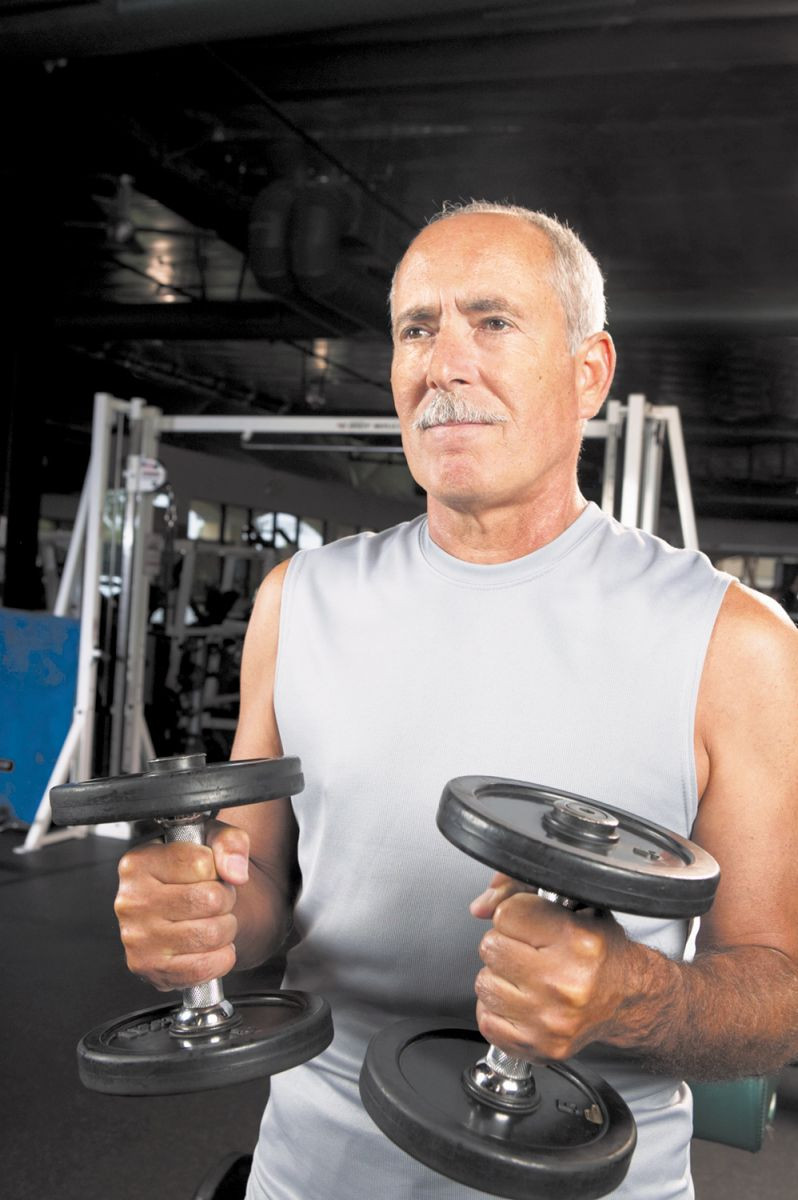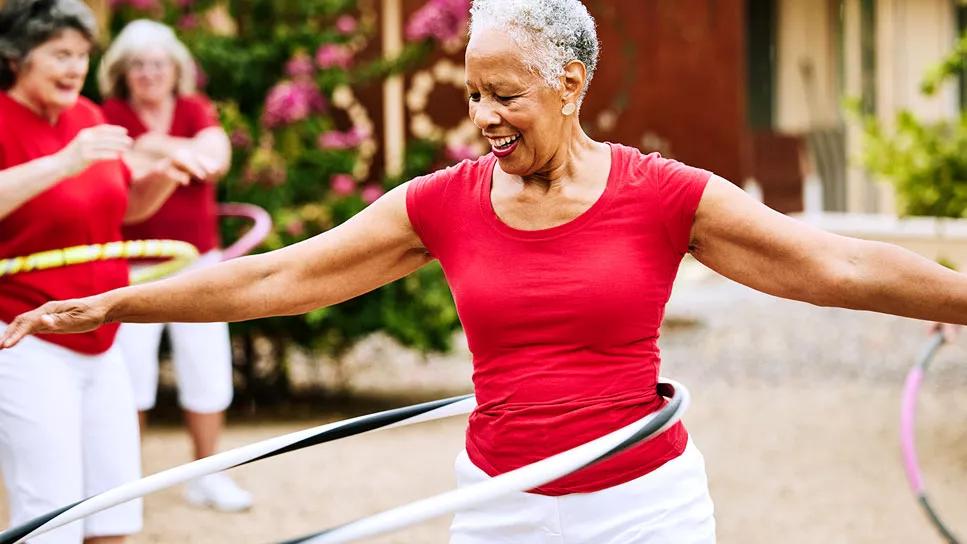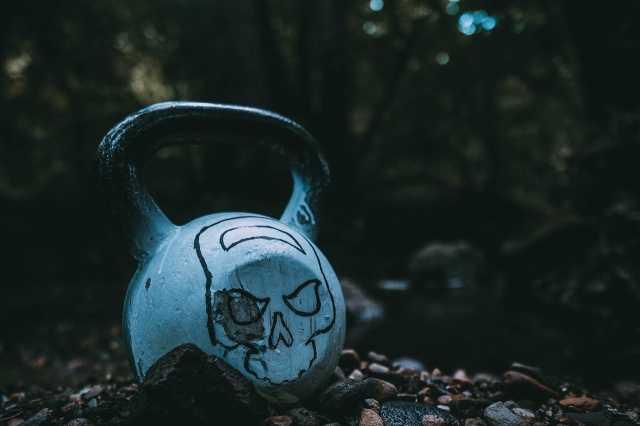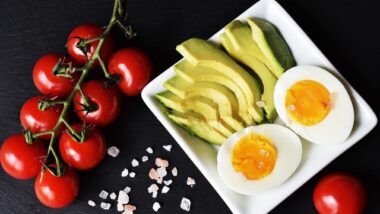Yes, you can lose weight naturally as you get older. It requires consistency in healthy habits and lifestyle choices.
Aging often brings changes to metabolism and muscle mass. Despite these challenges, natural weight loss is achievable. Focus on balanced nutrition, regular physical activity, and adequate sleep. Prioritize whole foods, lean proteins, and vegetables. Stay hydrated and reduce sugar intake.
Strength training helps maintain muscle, boosting metabolism. Consistency is key. Small, sustainable changes lead to long-term success. Avoid quick fixes or fad diets; they rarely work long-term. Embrace a healthy lifestyle for lasting results.

Credit: www.health.harvard.edu
Aging And Weight Gain
As we age, weight gain can become a common concern. Many factors influence this, including changes in metabolism and hormonal shifts. Understanding these changes can help manage weight naturally.
Metabolism Changes
Metabolism slows down with age. This means the body burns fewer calories. Less physical activity can also contribute to weight gain. Here’s a simple table to illustrate the changes:
| Age Group | Average Metabolic Rate |
|---|---|
| 20-30 years | High |
| 30-40 years | Moderate |
| 40-50 years | Low |
| 50+ years | Very Low |
To combat this, increase physical activity. Choose activities like walking or swimming. Eating nutrient-dense foods also helps. Here are some tips:
- Eat more vegetables and fruits.
- Include lean proteins in your diet.
- Avoid processed foods and sugary drinks.
Hormonal Shifts
Hormonal changes also play a role in weight gain. As we age, hormones like insulin and cortisol can fluctuate. This affects how the body stores fat. For women, menopause brings significant hormonal shifts. Here are some common effects:
- Increased abdominal fat.
- Decreased muscle mass.
- Slower metabolism.
Men also experience hormonal changes. Testosterone levels drop, leading to muscle loss. This can make it easier to gain weight. To manage these changes, consider the following tips:
- Exercise regularly.
- Get enough sleep.
- Manage stress effectively.
Understanding and adapting to these changes can help maintain a healthy weight.
Dietary Adjustments
As you age, losing weight can become challenging. Making smart dietary adjustments can help. Eating the right foods and controlling portions is key. Let’s explore how you can make these changes effectively.
Nutrient-dense Foods
Choosing nutrient-dense foods is essential. These foods provide more nutrients with fewer calories. They help maintain health while aiding weight loss. Here are some examples of nutrient-dense foods:
- Fruits and vegetables
- Whole grains
- Lean proteins like chicken and fish
- Legumes and beans
- Nuts and seeds
Incorporate these foods into your daily meals. They are rich in vitamins, minerals, and fiber. Fiber helps you feel full longer, reducing overeating. Aim to fill half your plate with fruits and vegetables.
Portion Control
Practicing portion control is crucial for weight loss. Eating large portions, even of healthy foods, can lead to weight gain. Use these simple tips to manage portions:
- Use smaller plates and bowls.
- Measure servings with a food scale or measuring cups.
- Read food labels to understand serving sizes.
- Avoid eating straight from the package.
- Listen to your hunger cues.
Smaller portions can help you consume fewer calories. This makes it easier to lose weight without feeling deprived. Remember, it’s not just what you eat but also how much you eat.
Exercise Regimens
As you grow older, losing weight naturally becomes more challenging. One effective way to achieve this is through a balanced exercise regimen. This section will cover two key components: Strength Training and Cardio Workouts.
Strength Training
Strength training helps build muscle mass, which tends to decline with age. Increasing muscle mass boosts your metabolism, making it easier to burn calories. Here are some strength training exercises:
- Squats: Great for your legs and core.
- Push-ups: Strengthen your chest, shoulders, and triceps.
- Deadlifts: Target your back, legs, and glutes.
- Planks: Improve your core strength and stability.
Try to include these exercises in your routine at least three times a week. Start with lighter weights and gradually increase as you get stronger. Also, make sure to rest between sets to avoid injury.
Cardio Workouts
Cardio workouts are essential for burning calories and improving heart health. They also help in maintaining a healthy weight. Here are some popular cardio exercises:
- Walking: A low-impact exercise that can be done anywhere.
- Running: Great for burning calories quickly.
- Cycling: Good for your legs and cardiovascular health.
- Swimming: Full-body workout that is easy on the joints.
Aim for at least 150 minutes of moderate cardio activity each week. You can split this into 30-minute sessions, five days a week. Remember, consistency is key to seeing results.
| Exercise | Frequency |
|---|---|
| Strength Training | 3 times a week |
| Cardio Workouts | 5 times a week |
Combining strength training and cardio workouts will help you lose weight naturally as you age. Always consult your doctor before starting any new exercise regimen.

Credit: www.healthline.com
Stress Management
Managing stress is crucial for weight loss as you age. Stress can lead to weight gain by increasing cortisol levels. Effective stress management helps maintain a healthy weight. Here are some techniques to manage stress naturally.
Meditation Techniques
Meditation can reduce stress and promote relaxation. Try these simple techniques:
- Deep Breathing: Sit comfortably, close your eyes, and breathe deeply. Inhale through your nose, hold for a few seconds, then exhale slowly through your mouth.
- Guided Meditation: Use apps or online videos for guided meditation. They provide step-by-step instructions to help you relax.
- Body Scan Meditation: Focus on each part of your body from head to toe. Notice any tension and consciously relax those muscles.
Mindfulness Practices
Mindfulness helps you stay present and reduce stress. Here are some practices to try:
- Mindful Eating: Pay attention to what you eat. Savor each bite and notice the flavors, textures, and smells.
- Mindful Walking: Walk slowly and focus on each step. Feel the ground under your feet and notice your surroundings.
- Mindful Breathing: Take a few minutes each day to focus on your breath. Notice the sensation of air entering and leaving your body.
| Technique | Description |
|---|---|
| Deep Breathing | Sit comfortably and breathe deeply. Inhale through your nose, hold, then exhale slowly. |
| Guided Meditation | Use apps or videos for guided relaxation instructions. |
| Body Scan Meditation | Focus on each body part from head to toe and relax those muscles. |
| Mindful Eating | Pay attention to food. Savor each bite and notice flavors, textures, and smells. |
| Mindful Walking | Walk slowly, focus on each step, and notice your surroundings. |
| Mindful Breathing | Focus on your breath and notice the sensation of air entering and leaving your body. |
Quality Sleep
As we age, achieving quality sleep becomes crucial for overall health. Good sleep supports weight loss naturally. It’s essential to understand the value of sleep and how to improve it.
Sleep Hygiene Tips
Improving sleep hygiene can help you achieve better sleep. Here are some tips:
- Maintain a consistent sleep schedule.
- Create a relaxing bedtime routine.
- Ensure your bedroom is dark and quiet.
- Avoid caffeine and heavy meals before bed.
- Limit screen time in the evening.
Impact On Weight Loss
Quality sleep directly impacts weight loss. Poor sleep affects hunger hormones, making you eat more. Here’s how:
| Sleep Quality | Impact on Weight |
|---|---|
| Poor Sleep | Increases hunger and cravings |
| Good Sleep | Regulates appetite and boosts metabolism |
Getting enough sleep helps your body burn calories efficiently. This supports natural weight loss as you get older.
Hydration Importance
Hydration is essential for maintaining overall health, especially as we age. Drinking enough water helps with weight management, improves skin health, and supports digestion. Here, we discuss the importance of hydration and how it influences weight loss for older adults.
Daily Water Intake
Your body needs adequate water to function properly. As you age, your sense of thirst diminishes. This makes it crucial to consciously drink water throughout the day.
Experts recommend drinking at least 8 cups of water daily. This amount can vary based on individual needs, activity levels, and climate.
| Age Group | Recommended Daily Water Intake |
|---|---|
| Adults (19-50 years) | 8-10 cups |
| Older Adults (50+ years) | 8 cups |
Keep a water bottle with you to remind you to stay hydrated. Drinking water before meals can also help control appetite and prevent overeating.
Hydration And Metabolism
Staying hydrated boosts your metabolism, which is vital for weight loss. Water helps break down food and absorb nutrients efficiently.
Dehydration slows down your metabolism, making it harder to lose weight. Drinking water increases your body’s energy expenditure, even at rest.
- Water helps burn calories.
- It aids in digestion.
- Hydration regulates body temperature.
Drinking cold water can temporarily boost metabolism as your body works to warm it up. This results in burning more calories.
Consistent hydration is key to maintaining a healthy weight as you age. Aim to drink water regularly throughout the day for optimal benefits.
Healthy Snacking
As you age, maintaining a healthy weight can become more challenging. One key strategy is healthy snacking. Smart snack choices can keep you full and provide essential nutrients.
Smart Snack Choices
Choosing the right snacks is crucial. Opt for snacks that are high in protein and fiber. These nutrients will keep you full longer and help you avoid overeating. Here are some smart snack ideas:
- Almonds and walnuts
- Greek yogurt with berries
- Carrot sticks with hummus
- Apple slices with peanut butter
- Whole-grain crackers with cheese
These snacks are not only nutritious but also easy to prepare. They provide a balanced mix of protein, fiber, and healthy fats. This mix helps in managing your weight effectively.
Avoiding Late-night Eating
Late-night eating can sabotage your weight loss efforts. When you eat late, your body may store more fat. It’s best to avoid eating after dinner. Here are some tips:
- Have a filling dinner with protein and fiber.
- Drink water or herbal tea to curb late-night hunger.
- Brush your teeth after dinner to discourage eating.
Keeping a consistent eating schedule helps regulate your metabolism. This helps in burning calories more efficiently.
Support Systems
Finding the right support system is crucial for successful weight loss, especially as you age. Support systems can help keep you motivated, accountable, and engaged in your journey. Whether you join a fitness community or partner up with someone, having support makes a big difference.
Fitness Communities
Joining a fitness community can give you the boost you need. These communities offer shared goals, group activities, and mutual encouragement. Being part of a group can make exercise more fun and less of a chore.
Many fitness communities provide online forums, classes, and events. This variety ensures there’s something for everyone. You can find support in person or virtually, making it easier to stick with your routine.
Consider these benefits of joining a fitness community:
- Motivation: Seeing others succeed can inspire you.
- Accountability: Regular check-ins keep you on track.
- Resources: Access to expert advice and tips.
- Social Connection: Meet new friends with similar goals.
Accountability Partners
An accountability partner can be a game-changer in your weight loss journey. This person keeps you accountable and motivated. Choose someone who shares your goals and values.
Your accountability partner can be a friend, family member, or coworker. You can check in with each other regularly to discuss progress and challenges. This regular interaction helps maintain your focus and commitment.
Here are some tips for finding and working with an accountability partner:
- Choose Wisely: Pick someone reliable and supportive.
- Set Clear Goals: Define your weight loss targets together.
- Regular Check-ins: Schedule weekly or bi-weekly meetings.
- Be Honest: Share your struggles and celebrate wins.
Having an accountability partner makes your weight loss journey less lonely. It adds an extra layer of support and motivation.

Credit: health.clevelandclinic.org
Frequently Asked Questions
At What Age Do Elderly Start Losing Weight?
Elderly individuals often start losing weight around age 70. This can be due to muscle loss and decreased appetite.
How Do I Stop Losing Weight When I Get Older?
Maintain a balanced diet rich in nutrients. Engage in regular strength training exercises. Ensure adequate sleep. Avoid skipping meals. Consult with a healthcare professional.
Does It Take Longer To Lose Weight When You Are Older?
Yes, losing weight can take longer as you age. Metabolism slows down, and muscle mass decreases, affecting calorie burn.
Why Is Losing Weight So Hard When You Get Older?
Metabolism slows with age, reducing calorie burn. Muscle mass decreases, lowering energy expenditure. Hormonal changes can also affect weight.
Conclusion
Losing weight naturally as you age is achievable with the right approach. Focus on a balanced diet, regular exercise, and healthy lifestyle changes. Stay consistent and patient, and you’ll see results. Remember, it’s never too late to start your journey to better health.
Embrace these strategies and enjoy a healthier, happier life.


